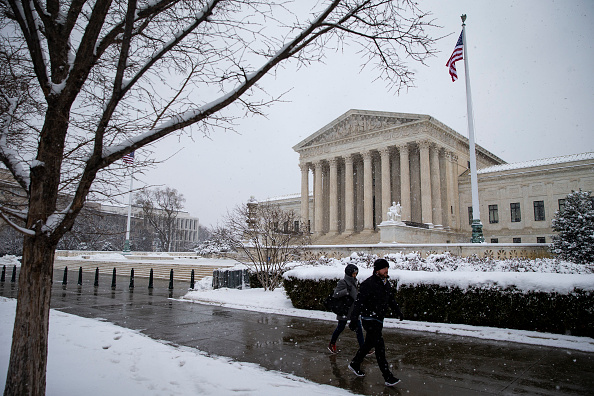Introduction
The challenges of the post-COVID-19 legal landscape have led many courts and lawyers to adapt their practices in response to unprecedented disruptions. The adaptation to remote work, leveraging technology, and rethinking courtroom procedures have allowed legal professionals to navigate delays and closures that have become all too familiar. In this article, we will explore the current state of the legal system, the implications of winter weather on court proceedings, and strategies that practitioners are employing to maintain effectiveness amid ongoing challenges.
Adapting to New Norms
As highlighted by Michael Sklare, co-managing shareholder of Greenberg Traurig’s Northern Virginia office, the legal community has shown resilience in adapting to new standards of operation. The pandemic forced many courts to halt in-person proceedings, thereby creating delays in many legal matters. However, it also prompted rapid advancements in the utilization of technology within the legal system, indicating a willingness from lawyers and courts to embrace alternative methods of practice, including video conferencing and electronic filing systems.
Impact of Winter Weather on Court Operations
With winter approaching, forecasts of severe weather can cause significant disruptions in court operations. Sklare’s comments underscore a crucial observation: litigation, particularly in the Washington, D.C., area, may face additional hurdles during January due to winter storms. Courts in affected regions might have to consider adjustments, such as remote testimony or extending deadlines, to ensure that cases are managed effectively, irrespective of external weather conditions.
Remote Testimonies: A Growing Trend
One of the silver linings of the pandemic has been the increased acceptance of remote testimonies. Legal professionals are learning to navigate processes that once necessitated physical presence, offering flexibility for all parties involved. Remote testimonies not only allow for a broader participation base but also help mitigate the impact of unexpected closures due to weather, as participants can join from various locations without the need for travel.
Preparedness in the Legal Community
As Sklare suggests, preparation is key to addressing anticipated challenges. The winter season often presents unpredictable weather patterns that can disrupt court schedules. Legal practitioners are encouraged to prepare for these challenges by developing contingency plans that can include filing extensions and rescheduling hearings. Such plans allow litigators to proceed without significant disruption to their client’s interests, showcasing an adaptable legal practice in the face of potential delays.
Collaboration with Courts
It is also important for lawyers to maintain open lines of communication with the courts. By informing the court about potential challenges and proposing solutions, attorneys can foster cooperative relationships that help streamline processes. Judges and clerks are often willing to accommodate reasonable requests for adjustments when informed ahead of time, especially under unforeseen circumstances like winter storms.
Conclusion
The post-COVID-19 legal environment presents several challenges, particularly with weather-related disruptions. Nevertheless, the legal community has shown a remarkable capacity for adaptation, embracing technology and revising traditional practices to meet the evolving demands of the profession. Ultimately, the ability to effectively manage delays and closures will depend on legal professionals’ preparedness and their willingness to collaborate with the courts. By doing so, they can continue to uphold the integrity of the legal process even amidst adversity.
FAQs
1. How has the legal industry adapted to a post-COVID-19 environment?
The legal industry has adapted by incorporating technology into daily practices, such as remote hearings and electronic filings, allowing for greater flexibility and continued access to justice despite potential barriers.
2. What impact does winter weather have on court proceedings?
Winter weather can lead to courthouse closures, delayed hearings, and the need for remote proceedings or extensions. Legal professionals must be prepared for these challenges to minimize disruptions.
3. What strategies can lawyers use to manage delays effectively?
Lawyers can manage delays by developing contingency plans, such as requesting filing extensions and maintaining communication with the courts to facilitate timely resolutions.
4. Are remote testimonies accepted in court?
Yes, remote testimonies have gained acceptance in many jurisdictions as a viable alternative, allowing for continued participation without the need for in-person appearances.
5. What role does preparation play for legal practitioners?
Preparation is crucial for legal practitioners to anticipate potential challenges and devise appropriate strategies, ensuring smooth operations during inclement weather or other disruptions.

